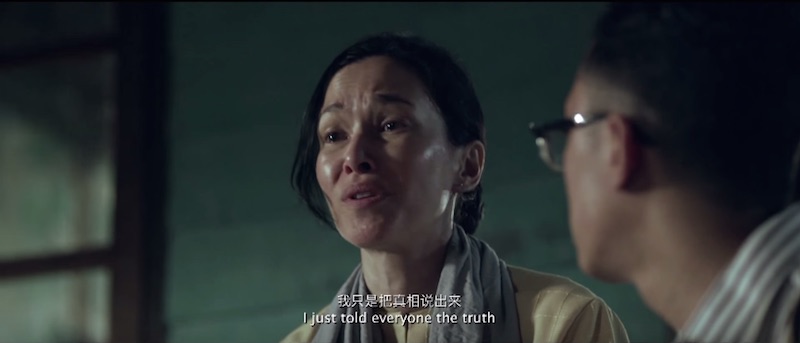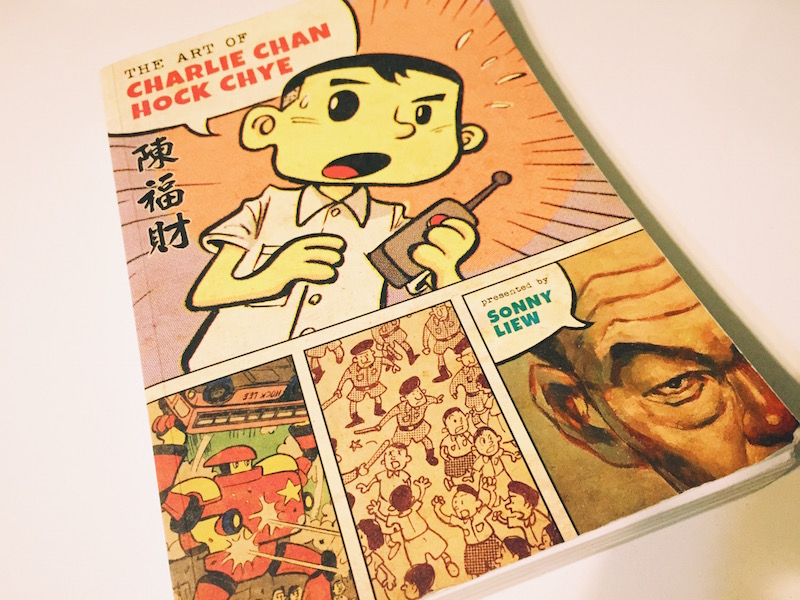Ah SG50 you card. With the nation’s golden jubilee comes the golden showers of self-gratification and an arguable excess of self-indulgence — like a jock in class telling each of his classmates that it is in fact his birthday, every five minutes. The gifts came in by the shiploads, in song, in friendship, and even in opulence — both good and bad.
Some of the more digestible gifts would have to be SG50 commemoration on stage and on the silver screen. There was the existence of the enthusiastic yet troubled Singapura: The Musical; Adrian Pang sang his heart out as Lee Kuan Yew; 7 Letters gathered notable local directors to offer their own vignettes in an anthology film.
And of course, there is the monumentally hyped 1965. With such a succinctly grand title, you’d think this would be epic tell-all about the birth of a nation — and it wouldn’t be wrong not to assume that. Supported heavily by the Media Development Authority, the film operated on a $2.8 million budget and flaunted a star-studded cast. Big names such as Joanne Peh, Deanna Yusoff, Qi Yuwu, James Seah (and Nicole Seah too!) peppered the cast roster. OG thespian Lim Kay Tong was even roped in to play the big man himself Lee Kuan Yew. Surely this movie has got to be at least good?
Fuck no.
It really is a wonder how a movie this big and ambitious got to be so… meh. What was meant to big scale drama turned out to be a confounding mish-mash of misplaced sentiments, awkward lines and painful acting. Take some of the most mediocre local TV dramas of late (it’s okay, we gave up on Channel 5 a long time ago too) and just imagine it being blown up in scale and duration. 1965 was like watching a pumped up tire deflate slowly, ending with an indifferent fart.

First, let’s talk about the true target audience of this film. The foremost omen — the cinema was filled with Chinese people, with only one indian couple in the theatre. The trailers that played before 1965 were all Chinese movies — there was some kind of Chinese Game of Thrones, Chinese Hunger Games and not to forget Chinese Titanic. Says a lot about how and to which demographic of society the movie was marketed.
Half an hour in and already I knew what to expect; this was a Chinese-centred story weirdly narrated by a Malay man — and a flat story at that. The conflict between the Malays and the Chinese were so one-dimensional and narrow. The whole racial riots of1964 started because of a random fight in a marketplace? No simmering tensions or any mention of the Malay community having a procession on Mawlid? And the conflict escalated because of a rumour? Dude, come on, the recipe for racial riots aren’t that simplistic.
Then there was terrible character development. Everyone’s so one-sided and stereotypical. There was the Hysterical Mother, the Righteous Policeman, the Rebellious Brother, the Naive Girl, et al. The worse characters however were the ones who were so flat that if they turned to their side, you’ll only see a thin upright line. Sezairi’s newbie policeboy (who did jackshit), Mike Kasem’s investigative journalist, and sadly even Lim Kay Tong’s Lee Kuan Yew were so inconsequential to the story that it was a waste of screen time every time they appeared.

Oh, and where are the Indians? Were they really such a rare sight in 1965? Did they not contribute to Singapore’s history? The decline of their population wasn’t that major until the early 1970s, when most of them left with the British. The only one character who was Indian turned out to be Pakistani, and even the actor portraying — Mike Kasem — is more American than Singaporean. Deanna Yusoff is Malaysian, and even then she’s of mixed heritage with a Malay dad and a Swiss mother. Qi Yuwu only arrived here from China in the 2000s. Was there a shortage of Singaporean actors to play during the call out to play in a movie about the history of Singapore?
Since they spent so much, I really don’t see any issue in getting some of the non-Malay actors to at least undergo some basic lessons in speaking Bahasa Melayu. All forms of authenticity were broken when the actors and actresses were so painfully unconvincing in their speech, as if they’ve never even spoken Melayu Pasar before, the defacto lingua franca among different races back then.
Case in point: That final speech made by Qi Yuwu’s character (I don’t even remember any of their names) at the kampung. Earlier on, he already makes it clear that he spoke and understoond Bahasa Melayu — why did he make his big address in Chinese in a Malay village? Poor Nicole Seah, who had to awkwardly translate his speech into Malay, and so awkwardly at that.
But that’s a minor issue, because the major disappointment was in the dialogue. Such hollowness in content combined with wooden delivery, confusing exposition and a distinct lack of chemistry between the cast all ended up into a big steaming soup of weaksauce. The discussions between the caucasian girl and Mike Kasem’s character served no purpose other than plating cheesy political rhetorics, which in turn added nothing to the story of 1965.

And then of course there was Lee Kuan Yew, looming large in the poster but such a nominal character in the film. You can see Lim Kay Tong trying so hard to bring in his true acting gravitas to make up for the half-baked film but damn son, even his usual prowess couldn’t do shit.
Sure, this wasn’t a biopic about him but his random appearances and articulated speeches only served as empty transition instead of showing how he actually contributed to solving issues. All this was made even jarring when the film shoehorned real-life scenes from his funeral in March. If I was watching the movie with no idea about the history of Singapore, I’d be severely confused why people were so sad when he died. All he did was wave at people and said things that made no impact whatsoever.

At the end of it all, all blame was pushed on the Indonesians and Konfrontasi, and that was that. Suddenly everything was fine and dandy because all the conflict and racial disharmony was because of the Indonesian instigators. In fact, it wasn’t even fleshed out on screen; it was just explained by overlaying text alongside scenes of the MacDonald House bombing.
But hey, don’t take my word for it — I asked a couple of senior citizens who actually experienced the whole thing themselves back in the ’60s. They watched 1965 too, and they wholeheartedly agree that it was a shitty movie.
For one septuagenarian, she couldn’t even start talking about that tumultuous year without getting emotional. The movie did nothing to portray the extreme climate of fear that lingered in the air during the 1964 racial riots. Here’s an anecdote:
“My husband and I was on the way to the Padang for Mawlid, and were driving through Geylang with our baby. When we reached Mountbatten, some people were telling us to turn back — and that’s when we saw the Chinese gangs coming out of alleyways towards us with parangs. I was so scared that I hid my baby under the car seat as my husband desperately tried to find a way out of there. Luckily, a kind Chinese fellow showed us a shortcut and we escaped the riots unharmed.”
Her husband also lamented about how folks are romanticising 1965, despite it being a shit year for Singaporeans. There was nothing to celebrate about 1965, and the film itself was — in his own words — lame.
Instead of wasting your hard-earned money on 1965, may we suggest some alternatives to comemmorate Singapore’s 50th anniversary of independence.
7 Letters

All the best parts about what it means to be a Singaporean, without all that overly-dramatic bullshit. It’s just seven local directors doing what they do best in presenting Singapore as it is, warts and all. Trust me, even after just watching 30 minutes of the movie, it put 1965 to shame. Even Jack Neo, in his infinite thematic repetitiveness (kids being mischievous, heavy sentimentality, Chinese culture) does well in his own short story, and the rest of the vignettes are equally (if not more so) superb. Golden Village even extended its run till Sep 2, so make this film your SG50 must-see.
The Art of Charlie Chan Hock Chye

This one’s and unflinchingly entertaining look as Singapore’s history through the diorama of comic books and the fictional works of fictional artist Charlie Chan. Bold, provocative and unafraid of looking at the ugly bits of Singapore’s origins in the eye, it’s not hard to imagine why the National Arts Council revoked their grant over “sensitive content”. A beautiful work that celebrates both comic books as a medium and a mirror reflecting Singapore’s past and present.
Photo: 1965 Facebook page; YouTube screengrabs




